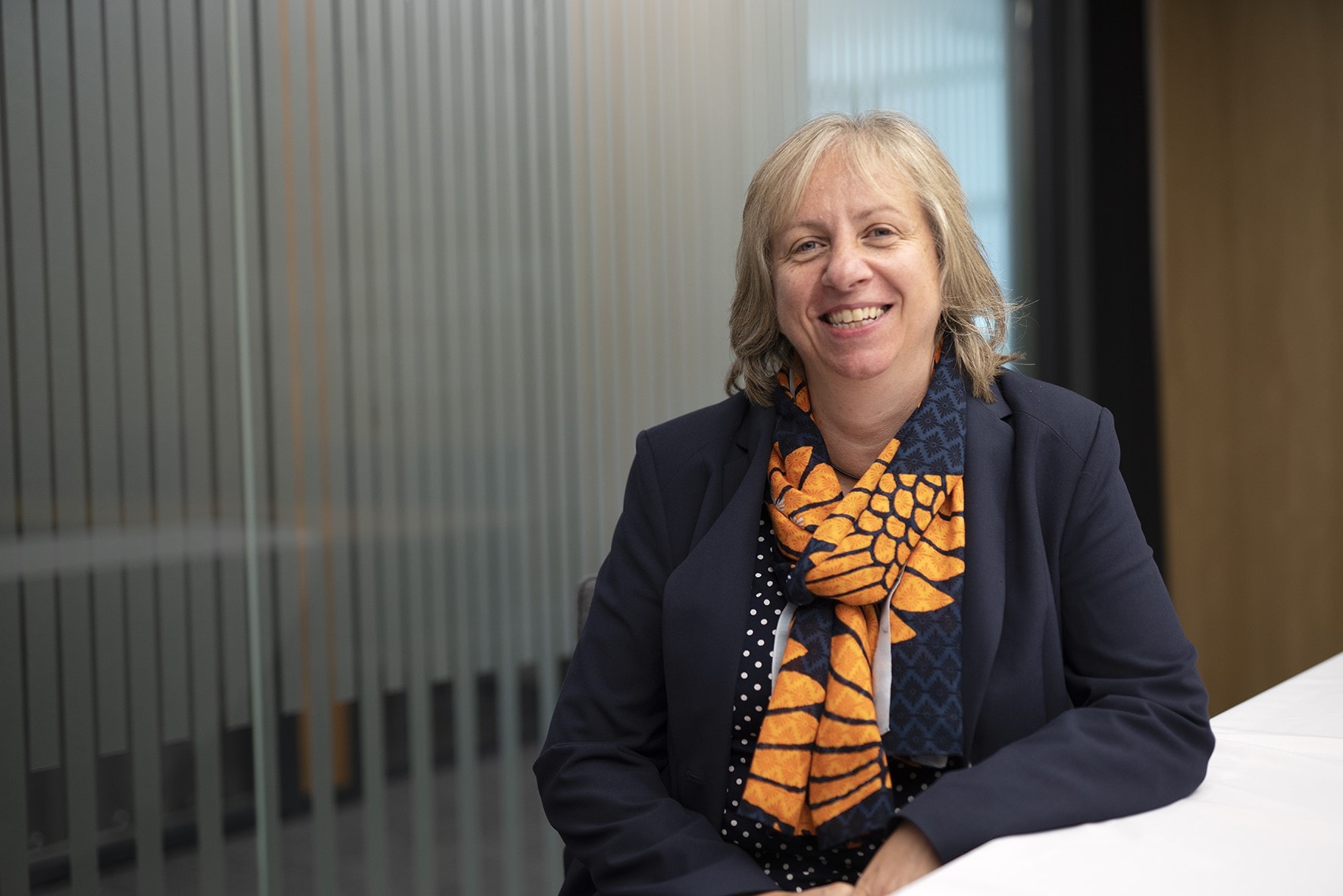Decisive action is needed to prevent the climate crisis from reaching a tipping point. And it’s only with the cooperation of all stakeholders – from governments to private companies – that we can effectively combat climate change. That is why Philip Morris International (PMI) is proud to be a part of the 50 Sustainability and Climate Leaders platform.
The platform serves as a response from the International Business Community to demonstrate their desire and commitment to take effective action in the fight against climate change. Through a documentary, the project will showcase how each business is providing leadership in its sector in the fight against climate change through effective leadership in: energy transition; climate finance and carbon pricing; industry transition; nature-based solutions; cities and local action; and resilience.
PMI’s inclusion is recognition of its transformation and how the company is responsibly managing its transition, as well as its impact on society and the environment. Its vision is aligned to the UN Sustainable Development Goals and aims to contribute to making them a reality. For PMI, sustainability means creating long-term value while minimizing the negative externalities associated with its products, operations, and value chain.
Leading a transformation in the tobacco industry: PMI recognized as a global sustainability leader
Music starts.
Jacek Olczak, COO of Philip Morris International speaks:
I do think that within a decade or so, we could come to the day that will sell the last cigarette.
I also hope this will be the last day the industry will sell the cigarettes.
Words appear on screen reading: 50 Climate Leaders.
Sustainability – a race we can win.
Jacek Olczak continues speaking:
We are Philip Morris International.
Our vision is to create a smoke-free future.
I think the whole idea started more than ten years ago.
Dr Moira Gilchrist, Vice President Scientific & Public Communications, Philip Morris International, speaks to camera:
It's very clear that the programs in place to prevent people from starting smoking,
and to encourage those who have started to quit completely,
they absolutely need to continue.
But even by the WHO’s own estimates
there will still be more than a billion people who smoke around the world in 2025.
So it's for those people that we believe the strategy of offering them better
alternatives that can help not to eliminate their risk, but to reduce their risk
can really contribute to the overall reduction in in disease.
Jennifer Motles, Director Social Impact of Sustainability, Philip Morris International, speaks to camera:
The UN Sustainable Development Goals speak about the different things that
this world needs today to improve, in order to make it a better place for everyone.
We have addressed our business model and
what our company is doing and the change that we're
incorporating, and match it to these goals.
Even though our company has a big footprint and we have inevitably
big environmental and social impacts, the most big
and pressing impact that our company has is the product
that it sells, which is the cigarette.
So the most important and the priority issue to address
is the harms created by the product.
And the only thing that we can do is to not make it and sell it anymore.
Dr Moira Gilchrist, Vice President Scientific & Public Communications, Philip Morris International, speaks to camera:
The best thing is never to start using tobacco or nicotine products at all,
and I think we need to be absolutely clear about that.
Um, but we do know from decades
of scientific research that it's the burning of tobacco that causes the
production of the vast majority of the harmful chemicals that then
go on to cause smoking-related diseases.
So we've taken an approach where we have eliminated
burning in order to produce products that still deliver nicotine,
which is not the primary cause of smoking related diseases.
We need to be absolutely clear that smoke-free products are not risk-free.
They deliver nicotine, which is addictive, and it's not risk free itself while they deliver nicotine,
because otherwise we believe smokers simply won't switch to them.
So one of the reasons smokers choose to use cigarettes is because of nicotine.
So our strategy is to offer nicotine to them,
but in a much less harmful form through smoke-free products.
Jacek Olczak, COO of Philip Morris International speaks to camera:
I mean, the golden objective is can you one day produce the zero risk product of what we know?
The zero risk will never exist, but how far further we can push the risk profile of these other
products in order to give consumers that are the best choice.
Jennifer Motles, Director Social Impact of Sustainability, Philip Morris International, speaks to camera:
The change that our company is creating is much more complex that some people might think,
simply because what you see is that the product is being changed,
but actually what happens behind is that our entire value chain is being transformed.
And that takes so much more time and effort because it speaks about a systemic change
instead of just changing one product from another.
Jacek Olczak, COO of Philip Morris International speaks to camera:
Not many people understand that there is the entire sector around the tobacco industry,
which simultaneously have to go in parallel and have to be taken care of.
I have a responsibility to my tobacco growers
who very often are coming from the very poor countries,
and the tobacco growing is the only source of the income.
So I need to, on my strategy of preparing for the day that I will stop selling cigarettes.
Find some attractive alternative so they can, you know, continue the decent life post the tobacco day.
Huub Savelkouls, Chief Sustainability Officer, Philip Morris International, talks to camera:
Our sustainability strategy has four pillars.
One of them regards the environment within that pillar.
We are looking at reducing carbon emissions,
reducing water use, helping to reduce cigarette littering.
And also deforestation is an important aspect here.
This transformation is ongoing.
Today, about 13% of our revenues are coming from new products,
and three countries is already more than 50%.
So it's a very good thing and we are trying to accelerate it as fast as possible.
But we are also mindful of the fact that
this transformation creates other effects as well.
For example, on the environment.
So we look very carefully on what is the impact of this transformation on CO2 emissions,
on water use, on deforestation and on littering.
And in all of these areas, we are trying to see if there is a negative impact,
how can we mitigate it and how can we also accelerate improvements.
One simple example is regarding littering,
where we know that the new products are less likely to be litter.
That's a good side effect. Another one is regarding water use.
We know that the new products require more water to produce.
So we try to do as much as possible recycling of water and avoiding that.
The water use ultimately will be increasing compared to cigarettes.
But you have to imagine we have to rebuild factory after factory,
and all of these environmental considerations are coming into account as well.
Jennifer Motles, Director Social Impact of Sustainability, Philip Morris International, speaks to camera:
Because there are so many different parts moving and different parts of society
that are being touched by this change.
The transformation is not really about introducing a new product in the market.
It is actually changing completely the way that we are operating today and our business intimately.
Huub Savelkouls, Chief Sustainability Officer, Philip Morris International, talks to camera:
We have adopted so-called science-based targets.
That means that we reduce our emissions by 40% in line with the Paris climate agreement,
40% of the period 2010 to 2030.
We are well on track, having reduced already by 34% good about these targets.
They don't only regard our own operations, but the whole supply chain, because in fact,
most of our Co2 emissions occur in the supply chain.
And the most important effort that we are making
there is to improve the curing barn efficiency when curing tobacco.
That's where most of the emissions take place.
We're working closely with farmers on that.
Dr Moira Gilchrist, Vice President Scientific & Public Communications, Philip Morris International, speaks to camera:
We understood that there wouldn't be one single product that could
replace cigarettes, so we went for an approach of developing a
range of different products so that adult smokers who otherwise
would continue to use cigarettes could pick one that suited them.
So Japan is a really interesting case study for smoke-free products.
So we launched our heated tobacco product IQOS there nationally in 2015.
In only four short years, we've managed to switch almost 20% of adult smokers.
The American Cancer Society recently did a study to look at
what had caused the reduction in cigarette sales in Japan,
and the only reason they could find was the introduction of IQOS.
But also we've managed to achieve this without any worrisome levels of youth use of the product.
And again, that has been measured by the Ministry of Health in Japan.
So I think that's an incredible achievement.
And I think that's what we want to see happen in many other countries around the world.
It's really important that we have appropriate standards, appropriate access controls
in place and appropriate regulation, the right standards, the right regulation
can ensure that we maximize the benefit of smoke-free products
while minimizing the unintended consequences.
Jennifer Motles speaks to camera:
As long as everything remains the same. Nothing will really change.
And for that, we need to open up.
We need to make sure that we're transparent.
We need to make sure that we're really and
proactively addressing the concerns of society as a whole.
But at the same time, I think that there is a great opportunity for
different parts of society to really look deeper into what our company is doing.
Not all cigarette companies are the same, and from whatever part of
society you are standing, if there is potential in the value proposition and our
current offering to leverage it,
the more you know, the more informed you are, the more you can demand about what is
the role that a cigarette company today can play in society
and to help eradicate the problem of smoking.
Dr Moira Gilchrist speaks to camera:
We're encouraging independent research on our products.
We're encouraging governments to create appropriate regulatory frameworks
because these are important not just to reassure regulators,
but they're important to reassure smokers so that they know what they're switching to.
And I think that's something we're super concerned happens as quickly as possible.
So transparency has been critically important to us from the very beginning of the development and assessment of smoke-free products.
We've made our data transparently available,
we've made our publications transparently available,
and we've shared them not just with the scientific community,
but also with regulatory bodies around the world.
And what's really exciting for me now as a scientist
is that there starts to be a growing body of independent evidence,
the vast majority of which is actually in line with the the data and
the results that we've already published.
And I think that is a really important step in building trust in our evidence
and building trust that ultimately we can share that data with consumers, with adult smokers.
Jennifer Motles speaks to camera:
From our side, we need to play our part and make sure
that we are addressing the concerns of society proactively,
making sure that we're transparent,
that we disclose all the information that we have, how we're operating, how we're hanging.
How is it that we're improving?
What are the issues that we're looking into?
As well as inviting society to dialog with us and raise concerns
so that we can also address these either better or in
a more proactive manner.
Huub Savelkouls, Chief Sustainability Officer, Philip Morris International, talks to camera:
It's easy to talk about transformation.
How do you know what is real?
And I can understand that people are skeptical about that.
This is why we have published business transformation metrics,
where everybody can see how we are reallocating resources towards the new products and away from cigarettes, and how we are
making progress in phasing out cigarettes as a company.
Jennifer Motles speaks to camera:
I think society is in a place to demand from these other cigarette
companies to take every necessary step, and also
join us in our quest to delivering and achieving a smoke free-future.
Jacek Olczak speaks to camera:
I'm very proud to work for Philip Morris,
especially at this moment and being at the presumably one of the
biggest transformation in any industry.
I think we are right what we're doing. Sooner or later, others will follow us.
Jennifer Motles speaks to camera:
If all companies commit to a smoke-free future, we can achieve
a world without cigarettes faster and sooner.
Words appear on screen reading: 50 Climate Leaders.
Sustainability – a race we can win.
Music ends
Its Chief Sustainability Officer Huub Savelkouls said: “Corporations, both local and global, have a responsibility when it comes to creating lasting and meaningful change in order to ensure the sustainability of this world.” *
“Three years ago, PMI made a commitment to a future without cigarettes—a smoke-free future—and we are actively transforming our business to deliver on this promise as quickly as possible. Our smoke-free vision, and company’s purpose, is about creating a business that brings a positive societal change, and therefore, is much more sustainable,” said Savelkouls.
“It's easy to talk about transforming a company but how do you know whether it's real? I understand people are skeptical. That is why we have published our Business Transformation Metrics where everybody can see how we are reallocating resources towards new products and away from cigarettes.”
* Jennifer Motles succeeded Huub Savelkouls as Chief Sustainability Officer on November 1, 2020, following Mr. Savelkouls’ retirement from PMI.



